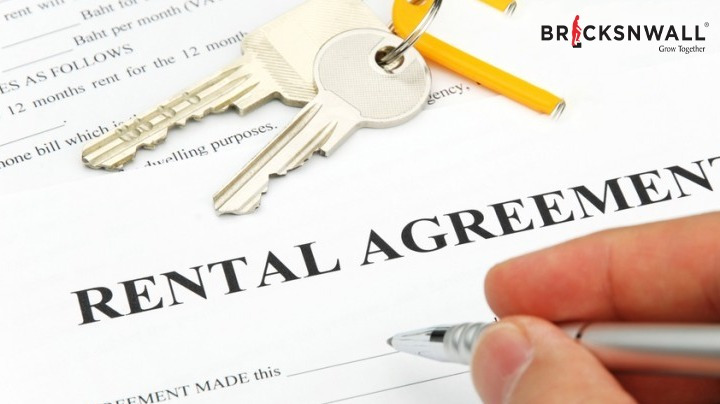What Is a Rent | Lease | Tenancy Agreement ?
Koheli

A rent, lease, tenancy agreement is a legal contract between you and your landlord. This document lays out the terms and conditions of your rental agreement, including things like rent amount, length of lease, and usage rights.
It's important to read your agreement carefully and ensure you understand everything before signing.
Why have a Lease Agreement?
When you're renting or leasing a property, it's important to have a signed Lease Agreement in place. This document spells out the terms and conditions of your tenancy, and it's the basis for resolving any disputes that may come up during your stay.
A Lease Agreement should include information on the following:
-The name and contact details of the landlord and tenant
-The address of the property
-The date the lease begins and ends
-What amenities are included (e.g., water, gas, electricity)
-Pets allowed (or not)
-Any special conditions or restrictions
Significance of lease agreement
A lease agreement is a vital document. It's what spells out the terms of your tenancy and outlines your rights and responsibilities as a tenant.
It's important to read through the lease agreement carefully and ask your landlord any questions you have before signing it. And remember, it's a binding contract, so once you sign it, you're legally obligated to stick to the terms.
So what should you look for in a lease agreement? Well, it should include information on the rent amount, when it's due, who's responsible for utilities, and whether or not the landlord can come onto the property to make repairs.
1. Know how to Go Through the Rent Agreement
Imagine this—you've finally found the perfect apartment. The location is great, the price is right, and it's just what you were looking for. So you put in an application, and—lo and behold—you get accepted!
The next step is to sign the lease agreement, but what the heck is a lease agreement? And more importantly, what's in it? Don't worry; we're here to help.
A lease agreement is a contract between you and your landlord, and it outlines the terms of your rental agreement. This includes things like the amount of rent you're expected to pay, when it's due, how long you're committing to rent, and what happens if you decide to move out before the end of your lease.
It's important to read through the lease agreement carefully and ensure you understand everything before signing. If there are any clauses that you don't agree with, be sure to bring them up with your landlord so that you can negotiate a change.
2. Connections Matter. Set up a Good One.
First, setting up a good connection with your landlord is important. This person is going to be your ally during your tenancy, so it's crucial that you have a good relationship from the get-go. Be communicative, and let them know if there are any problems with the property.
If you can, try and meet your landlord in person. You'll better understand who they are, which will help build trust. If that's not possible, be sure to communicate via email or phone, and always keep records of all conversations.
3. You Can Negotiate
When it comes to a rental agreement, you can negotiate just about anything.
Think about it—you're entering into a legal contract, so the landlord is going to want to cover their bases. But that doesn't mean you can't try to negotiate a lower rent or ask for some additional amenities.
4. Archive Any Existing Damage Before Moving In
When you're moving into a new place, it's important to document any existing damage. This way, you can avoid any disputes with your landlord down the road.
Take photos or videos of every room in the property—including the exterior—and make a list of any existing damage. This could be anything from a crack in the wall to a missing light fixture.
It's also a good idea to take this information with you when you go to sign your lease or tenancy agreement. This way, you can avoid any nasty surprises down the road.
5. Take Note of Your Exact Rent
When you sign a rental agreement, it's important to take note of the exact rent amount. This is especially important if your rent is going to be prorated, which means that it'll be paid monthly rather than all at once.
If your rent is prorated, the landlord should include a schedule that breaks down the monthly rent amount. This will help you plan your budget and ensure you're always on top of your payments.
6. The Pet Policies
When you're looking for a new place to live, it's important to know what the pet policies are. Some landlords allow pets, while others don't. And if they do, there may be restrictions on the type or size of pet you can have.
It's also important to find out how much the landlord charges for pet rent. This is a fee usually charged on top of your regular rent, and it's used to cover any damage your pet may cause to the property.
Finally, getting written confirmation of the landlord's pet policies is a good idea. This will help protect you in case there are any disputes down the road.
7. Incorporate a Severability Provision
You'll come across many documents you need to sign when you're looking for a new place to live. Among them will be a rent/lease/tenancy agreement. This is a very important document, so it's important to understand what it is before you sign it.
A rent/lease/tenancy agreement is a contract between you and your landlord. It lays out the terms and conditions of your tenancy, including things like the rent amount, when it's due, who is responsible for repairs, and how much notice you need to give before moving out.
If there's ever a dispute between you and your landlord, the rent/lease/tenancy agreement will be the first place that gets looked at to see what was agreed to. That's why it's so important to have a lawyer look it over before you sign it, to ensure that everything is in order and that you're not being taken advantage of.
8. Get Neighborhood and State Laws
When you're looking for a place to rent, it's important to be aware of the laws in your neighborhood and state. Each area has its own set of rules, and it's your responsibility to know what they are.
For example, in some states, landlords are allowed to raise the rent however they see fit. Other states have laws that protect tenants from being kicked out without a valid reason.
It's also important to know what kind of agreement you're signing. A lease is for a fixed period of time, whereas a tenancy agreement is more permanent.
9. Pay Special Mind to Unlawful Statements
When you're signing a rent/lease/tenancy agreement, it's important to pay special mind to any unlawful statements. This is something that could come back to haunt you down the road, so it's important to be aware of what you're agreeing to.
For example, some landlords might try to get you to sign a document saying you won't hold them responsible for any property damage. This is something that's definitely not okay, and it's worth discussing with your landlord before you sign anything.
You should also be aware of any unreasonable clauses in the agreement. For example, a landlord might try to include a clause that says you can't have any pets on the property. This is unfair and could put you in a difficult position down the road. So if there's anything in the agreement that doesn't seem fair, be sure to speak up and negotiate before you sign on the dotted line.
10. The Automatic Renewal of Your Lease
An automatic renewal clause is usually included when you sign a lease. What this means is that your lease will automatically renew itself for another term—usually at the current rate—unless you give notice that you don't want it to renew.
This is something you need to be really careful about, especially if you're not happy with the current terms of your lease. Sometimes, landlords will increase the rent or make other changes to the agreement when the lease renews, and you may not have much bargaining power if you're already locked in.
That's why it's important to read over your lease carefully and ensure you understand everything that's included in it. If there's anything you don't agree with, speak up before you sign anything.
11. Note your Late Installment Punishments
When you're signing a rent/lease/tenancy agreement, it's important to note the punishments for being late on installments. Most agreements have a clause that allows the landlord to charge you a certain percentage of the rent as a penalty.
For example, if you're late on your rent by two days, the landlord could charge you 10 percent of your rent as a penalty. This is why it's important to ensure that your payments are on time—you don't want to get stuck with a hefty bill!
12. Layout Utility Duty
When you're renting or leasing a property, it's important to know what's in the agreement. After all, this is a contract that's going to be binding for both you and the landlord.
Typically, a tenancy agreement will state who is responsible for what when it comes to the property. For example, it might say that the tenant is responsible for paying the water bill, while the landlord is responsible for paying the electricity bill.
Or it might say that the tenant is responsible for mowing the lawn while the landlord is responsible for keeping the property painted. You get the idea.
It's also important to know what kind of duties you're expected to perform while you're living on the property. For instance, will you be expected to clean the common areas every week? Or are you only responsible for your own unit?
A rent/lease/tenancy agreement layout can be confusing, but it's important to read through it carefully and ensure you understand everything before you sign on the dotted line.
13. Make House Runs Clear
When you're renting or leasing a property, it's important to have a clear understanding of what's expected of both you and the landlord. That's where a rent/lease/tenancy agreement comes in.
This document is essentially a contract between you and the landlord, and it lays out the terms and conditions of your tenancy. It covers things like how much rent you'll be paying, who is responsible for repairs, and how long the agreement is valid.
So, before you sign anything, make sure you read through the agreement thoroughly and understand what each clause means. Ask your landlord for clarification if there's anything you don't understand.
14. Comprehend Subleasing
Let's start with the basics. When you rent an apartment or house, you're entering into a legal agreement with the landlord, called a tenancy agreement. This document spells out the terms and conditions of your tenancy, including how much rent you'll be paying, when it's due, and what happens if you default on your payments.
But what happens if you want to sublet your place? A sublease is a legal agreement between you and the person who's subletting your place from you. It covers all the same things as your original tenancy agreement, but it's between two different people.
Make sure you understand all the ins and outs of subleasing before you enter into any agreements. You don't want to end up in a situation where you're stuck with a subletter who's not following the rules.
15. Know Your Privileges
Regarding rent/lease/tenancy agreements, it's important to know your rights and privileges. That's why you should always read the fine print before signing anything.
For example, most agreements give landlords the right to enter the property for certain reasons, like making repairs or showing it to potential tenants. But landlords can't just barge in whenever they feel like it—they have to give you reasonable notice first.
Knowing what happens if you want to break the agreement is also important. Most landlords will want you to give them a certain amount of notice, and they may also want you to pay a fee.
So, before you sign anything, ensure you understand what you agree to. It might seem like a lot of boring legal jargon, but it's important stuff!
16. The Out Clause
A rent/lease/tenancy agreement is a contract between you and your landlord. In this contract, you agree to pay a certain amount of rent each month in exchange for the use of the property.
The agreement will also specify the dates of your lease and any other details that are important to you and your landlord. For example, does the property come with parking? Is there air conditioning? Is the landlord allowed to enter the property without notice?
It's important to read the agreement carefully and ensure everything is spelled out clearly. If you have any questions, be sure to ask your landlord before signing anything.
And don't forget: if you ever need to break the agreement, make sure you do so in writing. This will protect you from any legal action that your landlord might take.
17. If It's Not In Writing, It's Not Binding
A rent/lease/tenancy agreement is a written document that outlines the terms of a rental agreement between a landlord and tenant. It's important to understand that if something isn't written down, it's not legally binding. So make sure that everything is spelled out clearly, including the rent amount, dates of occupancy, and any special conditions that might be relevant to your situation.
It's also a good idea to get everything in writing so there are no surprises down the road. If you have any questions or concerns, be sure to bring them up with your landlord before signing anything. After all, this is a big commitment, and you want to ensure both parties are on the same page.




